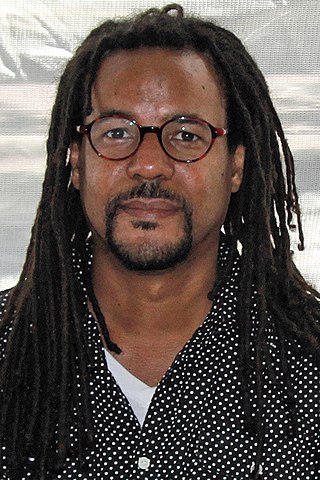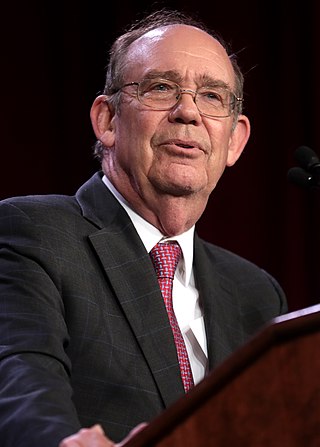Related Research Articles

Operation Fortitude was a military deception operation by the Allied nations as part of Operation Bodyguard, an overall deception strategy during the buildup to the 1944 Normandy landings. Fortitude was divided into two subplans, North and South, and had the aim of misleading the German High Command as to the location of the invasion.

Harlan is a home rule-class city in and the county seat of Harlan County, Kentucky, United States. The population was 1,745 at the 2010 census, down from 2,081 at the 2000 census.
The Wall Street Journal (WSJ) is an American business and economic-focused international daily newspaper based in New York City. The Journal is published six days a week by Dow Jones & Company, a division of News Corp. The newspaper is published in broadsheet format and online. The Journal has been printed continuously since its inception on July 8, 1889, and is regarded as a newspaper of record, particularly in terms of business and financial news. The newspaper has won 39 Pulitzer Prizes, the most recent in 2023.

This Pulitzer Prize has been awarded since 1942 for a distinguished example of reporting on international affairs, including United Nations correspondence. In its first six years (1942–1947), it was called the Pulitzer Prize for Telegraphic Reporting - International.

Operation Bodyguard was the code name for a World War II deception strategy employed by the Allied states before the 1944 invasion of northwest Europe. Bodyguard set out an overall stratagem for misleading the Oberkommando der Wehrmacht as to the time and place of the invasion. Planning for Bodyguard was started in 1943 by the London Controlling Section, a department of the war cabinet. They produced a draft strategy, referred to as Plan Jael, which was presented to leaders at the Tehran Conference in late November and, despite skepticism due to the failure of earlier deception strategy, approved on 6 December 1943.

Arch Colson Chipp Whitehead is an American novelist. He is the author of nine novels, including his 1999 debut The Intuitionist; The Underground Railroad (2016), for which he won the 2016 National Book Award for Fiction and the 2017 Pulitzer Prize for Fiction; and The Nickel Boys, for which he won the Pulitzer Prize for Fiction again in 2020, making him one of only four writers ever to win the prize twice. He has also published two books of nonfiction. In 2002, he received a MacArthur Fellowship.

The Lexington Herald-Leader is a newspaper owned by the McClatchy Company and based in Lexington, Kentucky. According to the 1999 Editor & Publisher International Yearbook, the paid circulation of the Herald-Leader is the second largest in the Commonwealth of Kentucky.

The Story of G.I. Joe, also credited in prints as Ernie Pyle's Story of G.I. Joe, is a 1945 American war film directed by William A. Wellman and starring Burgess Meredith and Robert Mitchum. The film was nominated for four Academy Awards, including Mitchum's only career Oscar nomination.

Dwight David Eisenhower II is an American author, public policy fellow, professor at the University of Pennsylvania, and eponym of the U.S. presidential retreat Camp David. He is the grandson of President Dwight D. Eisenhower and First Lady Mamie Eisenhower, and a son-in-law of President Richard Nixon and First Lady Pat Nixon.

The Providence Journal, colloquially known as the ProJo, is a daily newspaper serving the metropolitan area of Providence, the largest newspaper in Rhode Island, US. The newspaper was first published in 1829. The newspaper had won four Pulitzer Prizes as of 2023.

Mei Fong, also known as Fong Foongmei (方凤美), is a Malaysian-born American journalist who was staff reporter for the China bureau for The Wall Street Journal. In April 2007, she was awarded the Pulitzer Prize for International Reporting as part of the bureau's "sharply edged reports on the adverse impact of China's booming capitalism on conditions ranging from inequality to pollution." She is "believed to be the first Malaysian ... to achieve this distinction."

Barton David Gellman is an American author and journalist known for his reports on the September 11 attacks, on Dick Cheney's vice presidency, and on the global surveillance disclosure. Beginning in June 2013, he authored The Washington Post's coverage of the U.S. National Security Agency, based on top secret documents provided to him by ex-NSA contractor Edward Snowden. He published a book for Penguin Press on the rise of the surveillance-industrial state in May 2020, and joined the staff of The Atlantic.

Jack Belden was an American war correspondent who covered the Japanese invasion of China, the Second World War in Europe, and the Chinese Civil War in the late 1940s.
Louis Rudolph Harlan was an American academic historian who wrote a two-volume biography of the African-American educator and social leader Booker T. Washington and edited several volumes of Washington materials. He won the Bancroft Prize in 1973 and 1984, once for each volume, and the 1984 Pulitzer Prize for Biography or Autobiography for the second volume.
Rick Loomis is an American photojournalist, documentary filmmaker and producer based in Los Angeles, California. Loomis won the Pulitzer Prize for Explanatory Reporting in 2007.

Adam Goldman is a two-time Pulitzer Prize-winning American journalist. He received the award for covering the New York Police Department's spying program that monitored daily life in Muslim communities and for his coverage of Russian meddling in the 2016 presidential election.

William Robert Neikirk was an American journalist, editor, and author. He spent 48 years as a reporter and served as White House correspondent for the Chicago Tribune during the Clinton administration.
Nicole Eustace is an American historian who won the 2022 Pulitzer Prize for History, for Covered with Night: A Story of Murder and Indigenous Justice in Early America and was a finalist for the 2021 National Book Award for Nonfiction.
References
- ↑ "UK Alumni Association - Don Whitehead". Ukalumni.net. Archived from the original on 2012-04-04. Retrieved 2011-11-12.
- ↑ "Don Whitehead | College of Communication and Information". Cci.utk.edu. 1908-04-08. Archived from the original on 2012-04-15. Retrieved 2011-11-12.
- ↑ "UK Alumni Association - Don Whitehead". Ukalumni.net. Archived from the original on 2012-04-04. Retrieved 2011-11-12.
- ↑ "WALK OF FAME, Southwest Virginia Museum". Swvamuseum.org. 1908-04-28. Retrieved 2011-11-12.
- ↑ Mark T. Banker (2010). Appalachians all: East Tennesseans and the elusive history of an American region. University of Tennessee Press. ISBN 978-1-57233-473-1.
- ↑ "Don Whitehead • School of Journalism and Electronic Media". School of Journalism and Electronic Media. Retrieved 2020-08-25.
- ↑ "Don Whitehead Journalistic Collection". Dlc.lib.utk.edu. Archived from the original on 2011-11-12. Retrieved 2011-11-12.
- ↑ "Don Whitehead, Pulitzer Prize Winner for Dispatches on Korean War". The New York Times. 1981-01-14. ISSN 0362-4331 . Retrieved 2020-08-28.